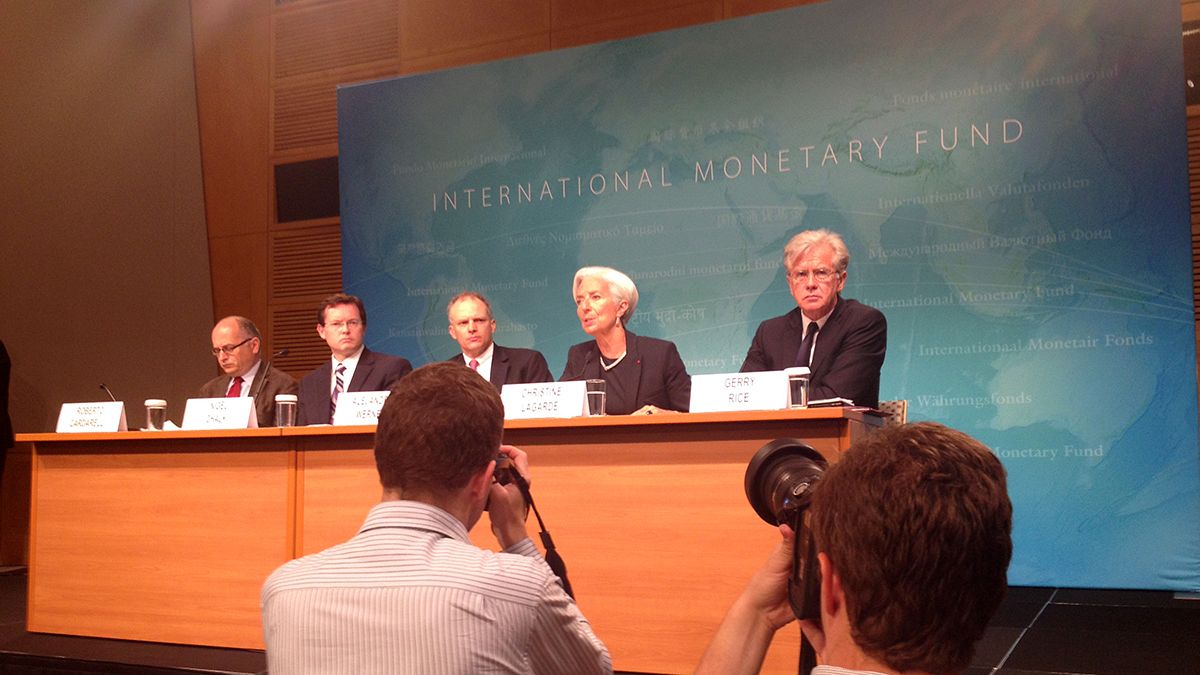There was only one moment in Monday’s press conference in Washington when Christine Lagarde reacted somewhat emotionally – and that was when euronews asked her whether she has lost any hope of the US authorities supporting and implementing the IMF reforms.
“Oh, no, no, not at all. I always have hope and I am optimistic”, she jumped in. But it might be a pious wish. The IMF, the G20 as well as the Obama administration have repeatedly called on Congress to ratify the reforms proposed by the IMF, so far to no avail.
The Republicans in Congress, driven by the right-wing tea party faction, show no willingness to act, especially in this election year. They believe that any changes of the statutes of the International Monetary Fund would result in diminished US influence.
This comes on top of a deep mistrust, if not hatred for any multinational organization.
The IMF agreed to a reform package in December 2010 that would give emerging-market economies such as China and Brazil a bigger say in IMF decisions, reflecting developing countries’ growing size and influence.
If passed, the new rules would double the IMF’s lending capacity.
In addition to the dispute over the reforms, the IMF had little joy about the American economic performance.
The IMF cut its growth forecast for the world’s biggest economy, now seeing the US economy grow 2 percent this year, down from an April estimate of 2.8 percent.
The IMF left a 2015 prediction unchanged at 3 percent, and said it doesn’t expect the United States to see full employment until the end of 2017, amid low inflation.
“We see prospects looking up for the US but we also believe that attention must now turn to the kinds of policies needed to lay the foundation for growth that will be sustainable,” Lagarde said.
Lagarde said the cut was largely linked to the economy’s contraction in the first quarter, when a harsh winter added to other factors such as a drawdown in inventories, a sluggish housing market and slower demand.
While a rebound is under way, it’s providing “only a partial offset” to the weakness at the beginning of the year, IMF economists wrote.
The IMF also lowered its prediction for the economy’s potential growth in future years to reflect the effects of an aging population and slower productivity growth.
It now sees average potential growth of 2 percent, compared with 3 percent in the 50 years through 2007. Last year its projections were 2.3 percent in 2015-2016 and 2.4 percent in 2017-2018.
Remarkably, the IMF noted the growing prosperity gap in the US, as the latest data showed almost 50 million Americans living in poverty.
Despite the ongoing, if subdued, recovery the official poverty rate has been stuck above 15 percent.
Reducing poverty will require, first and foremost, a much more robust return to growth and job creation, write the Fund’s economists.
But they are also seeing some light. The recent expansion of Medicaid and the increase in health insurance coverage have been concrete steps whose effect on poverty and health outcomes should become more evident over time, the IMF suggests.
